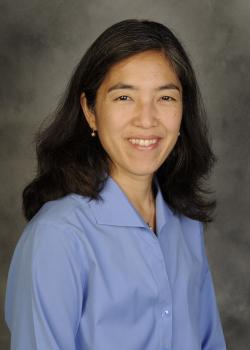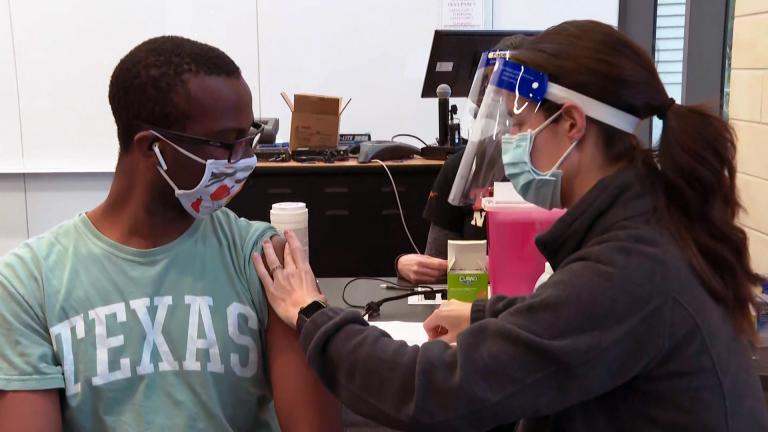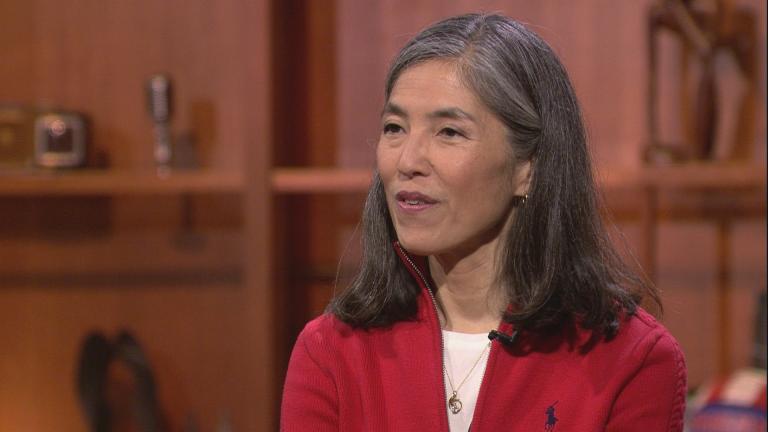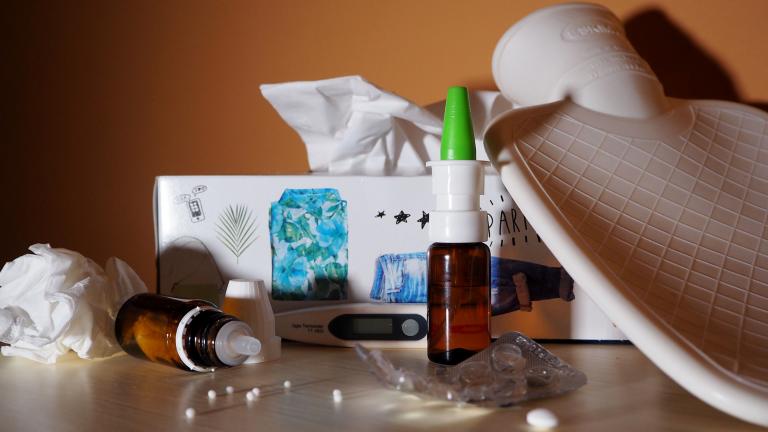After receiving an $800,000 grant through the Affordable Care Act, the Chicago Department of Public Health is working to increase HPV vaccinations in city teens. We chat with the agency’s medical director, Dr. Julie Morita, about the importance of informing students and parents about disease prevention.
Read an interview with Dr. Morita and view graphics on HPV below.
 How does the CDPH plan to increase HPV vaccination coverage for adolescents?
How does the CDPH plan to increase HPV vaccination coverage for adolescents?
We aim to increase vaccination coverage levels among Chicago adolescents by training 200 medical providers, instituting a patient reminder system, and getting the word out through a public education campaign.
What is HPV?
Human papillomavirus is a virus that can cause different kinds of diseases – the more serious is cervical cancers and other genital cancers, and genital warts. The HPV vaccine prevents 2-4 of the most common strains of the virus.
When did CDPH receive the grant funding?
The funding became available to us October 1, 2013 and we have it through 2014. Since we received the funding and even before that, we began planning for this campaign. We are working with health care providers throughout the Chicago area, and kick off our large public informational campaign in the spring.
What does the campaign entail?
Funds from the grant will be used for public service announcements both on radio and TV, for bus campaign ads, and print and outdoor media.
Will the campaign be present in schools?
We are contemplating doing a documentary that provides information on HPV and the vaccine for kids in schools. This part of the plan is focused on informing parents. The hesitancy we see is from parents, not the kids, so most communication is directed toward parents. We also have a stakeholder’s group consisting of health care providers and professional organizations, and we are vetting plans with them as they are evolving. We also have school leadership and the community members in the group, so having educational materials distributed may be a part of the campaign but we are not sure yet.
Where is the grant money coming from?
The grant funding is coming from Centers for Disease Control and Prevention made available through the Affordable Care Act that makes money available to public health programs preventing serious diseases.
What is the goal of this campaign?
We hope to improve coverage levels for teenage boys and girls to achieve our Healthy People 2020 initiative of 80 percent of three doses of vaccine.
Do you think 80 percent coverage is attainable by 2020?
I am hopeful. We have funding that will get us through the end of this year, and we know we can’t just do something one year. We will need to sustain our activities and have a buy-in from providers and the community. We don’t believe we will be at 80 percent by the end of this year but it will provide momentum and a jumpstart.
Chicago is already seeing greater success rates than at the national level?
We recognized that our coverage levels for the HPV levels were lagging behind. Our coverage levels have been lower in previous years so we started pushing for information on the HPV vaccine to get the word out. It’s always a challenge. We have to really sustain these efforts.
Let’s talk flu vaccinations: are vaccinations up?
We don’t have data for this year in Chicago at this point. The CDC does surveys in November and March to see how the U.S. as a whole is doing. I think we are doing OK this season, from the data we have, but that was as of November. We will have to see in March. We have done a lot to encourage people to get vaccinated and get a flu shot. We have posters, and Chicago sports players from Chicago Sky and Chicago Fire getting the word out. We did a late season push as well; you could see the Blue Cross Blue Shield building lit up to encourage people to get their flu shot. We hope vaccinations will be higher this year. Some people still believe it’s not safe or effective. So every year we need to remind people. And people think it isn’t serious. But it is. The symptoms are not to be taken lightly, and those with underlying health conditions can exacerbate their ailments.
How many die?
It varies from year to year but over 13,000 can die from influenza infections. This year, the H1N1 strain seems to be affecting younger people and those with underlying health conditions.
Are you seeing more people affected by the flu this season?
We don’t track that, but we do track hospital intensive care unit numbers. Those numbers now are fairly close to what we saw last year. We are still in the midst of it. It could be prolonged or stop suddenly. It’s too early to tell whether it’s a good or bad year. The season is definitely not over. Last year, we had one strain, then another B-strain that was circulating later. So we are seeing decreases in H1N1 strains but there may be a late surge in another strain. The vaccine this year is a good match for both.
Is the cold a contributing factor?
I have not seen any studies that prove there is a direct correlation between the cold weather and the flu. When it is cold, people stay in, so someone with a cold exposes others to the cold.
Regardless of the weather, it is important for people to get vaccinated, wash hands frequently, avoid touching the face or mouth, and stay home if they are sick.
Who should you contact for vaccinations?
We still have health department vaccines available. Individuals seeking flu vaccines should call their health care providers or retail pharmacies (people 10 and older can receive this vaccine at a pharmacy). For those without health care providers or without insurance, they can call 311 to find a nearby health department clinic. Individuals can locate a health department clinic or retail pharmacy by going to www.chicagoflushots.org.
Individuals seeking HPV vaccines should call their health care provider or retail pharmacies (people 14 years and older can receive this vaccine at a pharmacy). For those without health care providers or insurance, they can call 311 to find a nearby health department clinic.
Interview has been condensed and edited.








